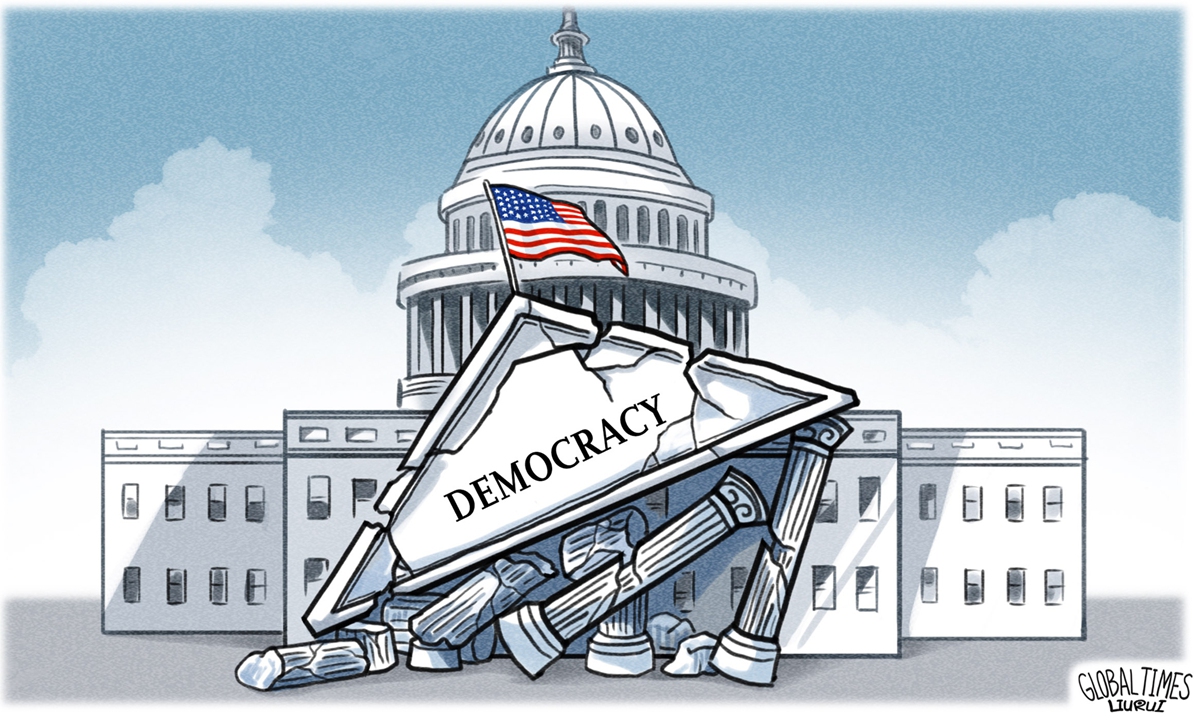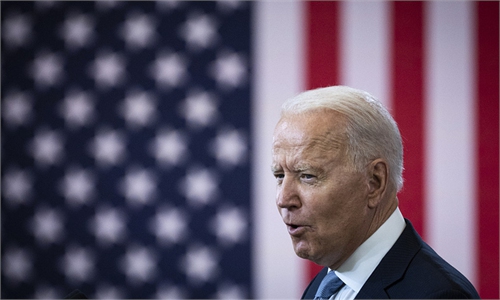
Illustration: Liu Rui/GT
China's growing global influence is something that unsettles the US. As a result, the US and its media spare no efforts to label China's economic outreach across the world as an ambitious strategy vying for hegemony. This is their way of attacking China. But they should explain why the US' own influence is declining. The US used the same tactic - attacking China - to hide its inaction in handling the COVID-19 epidemic. This in no way helps the US understand the real reason behind its failure.
A recent article in Foreign Policy magazine tried to teach the US how to learn from China, essentially to "win friends and influence people." It includes reforming the way it budgets and appropriates funds for foreign assistance, and how it offers developing countries what they actually want.
Indeed, these are the experiences of China's overseas endeavors that have proved to be effective. They show that China has a clear understanding of itself as well as the regions it goes to. In other words, China knows how to govern. And the decline of the US influence exposes Washington's shortcomings in terms of governance.
In political studies, effective national governance needs three factors: correct political values, a strong leadership, and efficient governance mechanisms.
But when the essence of democracy and human rights (the two values the US touts much about) keeps on weakening, there are bound to be doubts, especially when the US lacks a leader that can unify the two parties and forcibly push forward reforms, and when the US, dominated by a competition mentality, focuses on expanding its hegemony but puts aside the much-needed infrastructure projects. This leaves many feeling that there is nothing to be commended about the governance capability of the US government.
The US should have realized that its past overwhelming advantages are vanishing at a faster speed than expected. Meanwhile, the influence of its competitor is rising. This makes the US less confident and more anxious, unable to shed influence on other countries and regions, as we have observed in the Middle East and Afghanistan. But the US is yet to admit that this is attributed to its governance deficiencies.
On the contrary, China uses its wisdom, strength and resolve to show the world what a responsible path is. China's years of deep engagement in Africa enables the African people to know that only hard work brings happy lives - and that different races can co-exist peacefully.
As the Foreign Policy article noted, what China offers is what developing countries actually want. China helps their basic infrastructure construction needed for economic development. This is much more tangible than US slogans of democracy and human rights. When America itself is immersed in the democracy and human rights pitfalls, how can it persuade other countries to adopt its ways?
As China invests overseas and constructs infrastructure facilities in developing countries, it not only provides development opportunities to these countries, but also creates room for itself to export and promote structural reforms at home and help the world economy grow. China is dedicated to its idea of win-win solutions rather than selfishness. It can be said that China offers a model of governance.
Fudan University Professor Shen Yi said that unlike all major powers in history, China's integration into the international system has always been driven by the need to survive, to develop, and to rejuvenate. This makes China more correctly adapt to the profound changes in the international system than any other developed countries, including the US.
"If the US can grasp the theme of the world's development, accept China's goodwill, and make constructive adjustment to its governance mechanism and the way it sheds influence on the world, then the US will continue to be a great country and contribute to the world," said Shen.
The author is an editor with the Global Times. wangwenwen@globaltimes.com.cn


